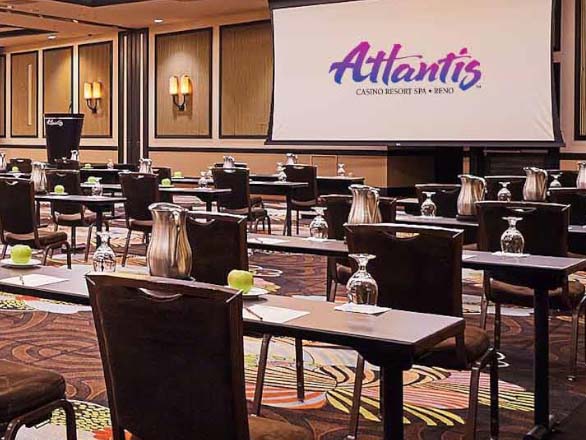The North American chapter of the International Group for the Psychology of Mathematics Education (PME-NA) invites you to join us at PME-NA 45 in Reno, Nevada, Oct 1-4, 2023.
Our conference theme is Engaging All Learners. Math learning should be a joyful experience for all students. When students are engaged and inspired, they are motivated to learn. Instruction that targets the learning needs and interests of our students makes it possible for students to excel in learning math.
At our annual meeting, we will explore how to create conditions to support learning that build on student engagement and interest, such as:
- How can we engage all students to learn math content by building on their interest and motivation to learn?
- How do we design learning environments that take student engagement and learning into account?
- What are the design features of tools and curricula design features considering student engagement and interest in supporting learning?
- How do we support pre-service and in-service teachers to engage students and support learning?
- How do we build partnerships with schools and the community to support student engagement and math learning?
- What research agendas should we pursue to ensure that all students reach their potential by paying attention to engagement and learning needs?
Research reports
Research reports are intended for reporting on complete research of the highest caliber. The papers can be empirical or theoretical.
The paper should discuss the following items (as applicable; in the case of a theoretical/conceptual paper, these can be different):
- Objectives or purposes of the study (including research questions);
- Perspective(s) or theoretical framework.
- Methods or modes of inquiry (including participants, contexts, data collection and analysis, etc.);
- Results; and
- Discussion and/or conclusions.
Authors of research reports should submit a maximum of 8-page paper (including figures, tables, and a 10-line abstract, but excluding references) which will be included in the conference proceedings. Authors are reminded to please use the provided templates to ensure correct formatting in the published proceedings.
Brief research reports
Brief research reports are intended for reporting on research that is in process or of a preliminary nature, such as sharing preliminary results from a larger research study or reporting initial findings from a study that has not been completely analyzed.
Brief research reports should address the same items as research reports, at least as appropriate:
- Objectives or purposes of the study (including research questions).
- Perspective(s) or theoretical framework.
- Methods or modes of inquiry (including participants, contexts, data collection and analysis, etc.);
- Results; and
- Discussion and/or conclusions.
Authors of Brief research reports should submit a maximum of a 4-page paper (including figures, tables, and a 10-line abstract, but excluding references) which will be included in the conference proceedings. Authors are reminded to please use the provided templates to ensure correct formatting in the published proceedings.
Posters
Poster sessions are designed to encourage the exchange of ideas. A Poster Presentation is a visual display depicting a research project, developed software, curricular innovation, educational program, or another item of interest to members of PME-NA.
Posters should include (as appropriate):
- Objectives and purposes of the study, project, or innovation (such as research questions);
- Perspective(s) or theoretical framework;
- Methods or modes of inquiry or design (such as participants, contexts, data collection, and analysis, etc.); and
- A summary of results and their implications.
Authors of Posters should submit a maximum 1-page summary of their poster (including figures, tables, and no abstract, but excluding references) which will be included in the conference proceedings. Authors are reminded to please use the provided templates to ensure correct formatting in the published proceedings.
Working groups
A working group focuses on an emerging or new research topic of substantial interest within the PME-NA community. Has a clear goal and a strategy to reach this goal in collaboration with the participants; includes structural opportunities for contributions by the participants to reach the goal; involves only a minimum of planned presentations to stimulate the specific collaboration or exchange.is provided by at least two researchers who are actively working on the research topic; covers three slots of 90 minutes each: and is represented via a 2-page proposal in the conference proceedings (with additional pages for references).
Working groups are subject to review to ensure the fit to the goals of PME-NA as an organization. Note: As of 2020, the PME-NA Steering Committee voted to reduce the number of pages for Working Group proposals to two pages only. A subcommittee of the Steering Committee will evaluate proposals to ensure a diversity of ideas being shared. As of 2021, the PME-NA Steering Committee voted to require returning working groups to submit a report that discusses what transpired within your Working Group for the three days in the previous conference, and the theoretical underpinnings of your work. This report may also include the work that your group has planned for the year between conferences. The report must be submitted with the proposal for the current conference through All-Academic. The proposal for 2023 will not be considered without the report. This report will be published in the proceedings of the current conference.
Proposals must include (max two pages):
- The topic, title, goal, and strategy to reach the goal of the working group;
- The names of all researchers contributing (minimum of 2);
- The name of the coordinator (corresponding researcher);
- An outline of the theoretical background of the research topic;
- An explicit statement of how the participants are expected to collaborate and/or exchange in the working group;
- An explicit statement if the working group is a new initiative or a follow-up on previous PME-NA activities, as well as an indication of tentative follow-up activities at future PME-NA conferences (such as further WGs or colloquia);
- A detailed description of the proposed organization of the WG, including thematic structuring, time structuring for three slots of 90 minutes each, as well as descriptions of planned presentations and participants’ exchange/collaboration activities; and
- A maximum of 100-word description (not to be included in the two pages) for the conference program. Please insert this description after the reference section.
Reports must include (8 pages):
- History of the work group;
- Progress made both during and in between the conference;
- Actions that were taken to include participants; and
- Questions to address in the future.
Working groups that have been meeting for multiple years, and who are able to share what they have been working on, are invited to submit a proposal for a Research Colloquium instead.
Research colloquia
A Research Colloquium: focuses on a research topic of substantial interest within the PME-NA community that has been developed during multiple previous PME-NA (or PME) working groups.
Research colloquia:
- Involves longer planned presentations to share what has been done in previous meetings within the group.
- Is provided by at least two researchers who are actively working on the research topic.
- Should include time at the end of each session for participants to share their thoughts and ideas or ask questions about the work that has been created (it is recommended that the organizers consider sharing areas that would allow for some exchange of ideas, but this is not the focus of the colloquia).
- Covers three slots of 90 minutes each: and is represented via a two-page proposal in the conference proceedings (with additional pages for references).
Research Colloquia are subject to review in order to ensure the fit to the goals of PME-NA as an organization. Note: As of 2020, the PME-NA Steering Committee introduced this new session type, and limited proposal length to a maximum of two pages. A subcommittee of the Steering Committee will evaluate proposals to ensure a diversity of ideas being shared. As of 2021, the PME-NA Steering Committee voted to require returning Colloquia to submit a report that discusses what transpired within your Colloquia for the three days in the previous conference, and the theoretical underpinnings of your work. This report may also include the work that your group has planned for the year between conferences. The report must be submitted with the proposal for the current conference through All-Academic. The proposal for 2023 will not be considered without the report. This report will be published in the proceedings of the current conference.
Proposals must include:
- The topic and title;
- The names of all researchers contributing (minimum of 2);
- The name of the coordinator (corresponding researcher);
- An outline of the theoretical background of the research topic;
- An explicit statement of the history of the working group;
- An explicit statement of areas that will be open for discussion with participants to allow for an exchange of ideas;
- A detailed description of the proposed organization of the colloquia, including thematic structuring, time structuring for three slots of 90 minutes each, as well as descriptions of planned presentations and participants’ exchange/collaboration activities; and
- A maximum of 100-word description (not to be included in the two pages) for the conference program. Please insert this description after the reference section.
Reports must include (8 pages)
- History of the Work Group or Research Colloquium;
- Progress made both during and in between the conference; and
- Questions to address in the future.
Submission guidelines
Please follow these guidelines carefully:
- Proposals may be in Spanish, French, or English. Proposals submitted in Spanish or French need to include a title and an abstract in English as well.
- The final manuscripts (to be submitted by May 31, 2023) of accepted papers, posters and working groups need to be in English but can be published in two languages (English and Spanish; or English and French) in the proceedings. Authors of accepted proposals in Spanish or French are responsible for translating them into English and submitting English versions before the final paper deadline of May 31, 2023.
- Proposals should be anonymized: please remove all identifying information, such as names of author(s), author institution(s), funding sources and author references.
- All submissions should be in .docx format, not PDF, or any other word processing format.
- The most important thing for you to do in your proposal preparation is to use the .docx templates provided here: English Proposal Template and Spanish/French Proposal Template
- When working with the templates, you should always use the built-in Styles as defined in the .docx templates.
- You must choose a single strand for your proposal submission (see below). If you do not feel any of the strands fit your work, then choose the strand that most closely fits. We welcome all scholarship related to mathematics education.
- Keywords should be selected from those listed at Strands and Keywords. Although you must select a single strand, you can select multiple Keywords for your proposal.
Submission limits
- An individual may serve as the primary presenting author for only one research report.
- An individual may be a co-author on multiple research report proposals, however, the (co) author who electronically submits a proposal is committing to present the work at the conference and can do so for only one research report proposal. This person must also register for the conference by the speaker registration deadline for an accepted proposal to remain in the program.
- An individual may serve as the primary presenting author for no more than two posters.
- Currently, there is no limitation on the number of brief research reports a person can submit as the primary presenting author.
- Thus, an individual may submit one or more brief research reports and up to two poster proposals in addition to one research report proposal.



